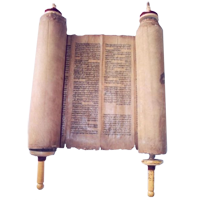- Montreal, Canada
- don@saintesecritures.org

Chapter 19 14 And there were seven sons of one Sceva, a Jew, and chief of the priests, which did so.15 And the evil spirit answered and said, Jesus I know, and Paul I know; but who are ye?16 And the man in whom the evil spirit was leaped on them, and overcame them, and prevailed against them, so that they fled out of that house naked and wounded.17 And this was known to all the Jews and Greeks also dwelling at Ephesus; and fear fell on them all, and the name of the Lord Jesus was magnified.18 And many that believed came, and confessed, and shewed their deeds.19 Many of them also which used curious arts brought their books together, and burned them before all men: and they counted the price of them, and found it fifty thousand pieces of silver.20 So mightily grew the word of God and prevailed.21 After these things were ended, Paul purposed in the spirit, when he had passed through Macedonia and Achaia, to go to Jerusalem, saying, After I have been there, I must also see Rome.22 So he sent into Macedonia two of them that ministered unto him, Timotheus and Erastus; but he himself stayed in Asia for a season.23 And the same time there arose no small stir about that way.24 For a certain man named Demetrius, a silversmith, which made silver shrines for Diana, brought no small gain unto the craftsmen;25 Whom he called together with the workmen of like occupation, and said, Sirs, ye know that by this craft we have our wealth.26 Moreover ye see and hear, that not alone at Ephesus, but almost throughout all Asia, this Paul hath persuaded and turned away much people, saying that they be no gods, which are made with hands:27 So that not only this our craft is in danger to be set at nought; but also that the temple of the great goddess Diana should be despised, and her magnificence should be destroyed, whom all Asia and the world worshippeth.28 And when they heard these sayings, they were full of wrath, and cried out, saying, Great is Diana of the Ephesians.29 And the whole city was filled with confusion: and having caught Gaius and Aristarchus, men of Macedonia, Paul's companions in travel, they rushed with one accord into the theatre.30 And when Paul would have entered in unto the people, the disciples suffered him not.31 And certain of the chief of Asia, which were his friends, sent unto him, desiring him that he would not adventure himself into the theatre.32 Some therefore cried one thing, and some another: for the assembly was confused; and the more part knew not wherefore they were come together.33 And they drew Alexander out of the multitude, the Jews putting him forward. And Alexander beckoned with the hand, and would have made his defence unto the people.





